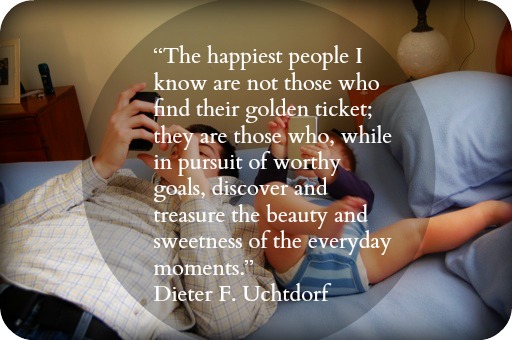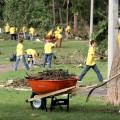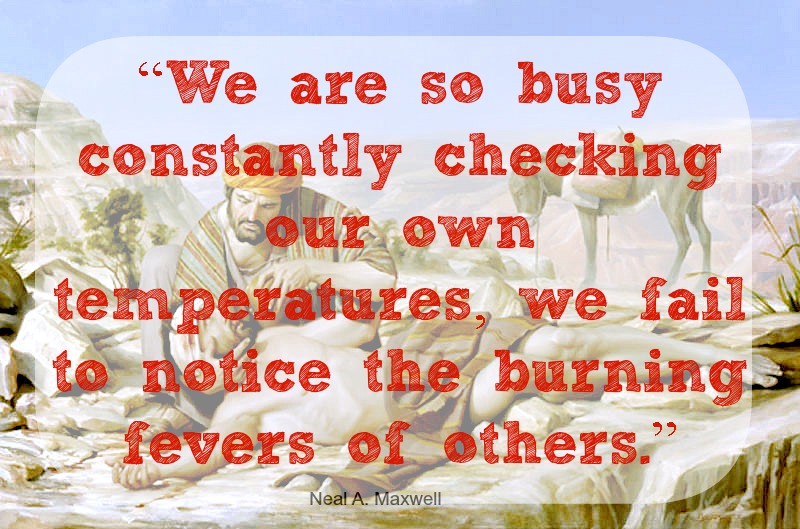According to Wikipedia, the free encyclopedia, “Freedom of religion or Freedom of belief is a principle that supports the freedom of an individual or community, in public or private, to manifest religion or belief in teaching, practice, worship, and observance; the concept is generally recognized also to include the freedom to change religion or not to follow any religion.”
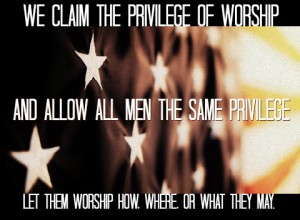 On the outset, Wikipedia’s definition appears to be an all-encompassing one that should be viewed as equitable by all concerned, as at its core, it basically states that all people are free to believe what they will, and worship, or not worship, as they so desire. If one were to review the First Amendment of the United States Constitution in hopes of finding a duplicate definition, however, he will find that somewhat different wording is used.
On the outset, Wikipedia’s definition appears to be an all-encompassing one that should be viewed as equitable by all concerned, as at its core, it basically states that all people are free to believe what they will, and worship, or not worship, as they so desire. If one were to review the First Amendment of the United States Constitution in hopes of finding a duplicate definition, however, he will find that somewhat different wording is used.
Religious Liberty and the First Amendment of the U.S. Constitution
Ross Douthat in his New York Times article titled Defining Religious Liberty Down notes:
THE words “freedom of belief” do not appear in the First Amendment. Nor do the words “freedom of worship.” Instead, the Bill of Rights guarantees Americans something that its authors called “the free exercise” of religion.
It’s a significant choice of words, because it suggests a recognition that religious faith cannot be reduced to a purely private or individual affair. Most religious communities conceive of themselves as peoples or families, and the requirements of most faiths extend well beyond attendance at a Sabbath service — encompassing charity and activism, education and missionary efforts, and other “exercises” that any guarantee of religious freedom must protect. [1]
Our Religious Freedoms Are Under Attack
There is no question that our religious freedoms are under constant attack. It appears that those things which were once considered taboo or in direct violation of our First Amendment rights, have now all but become the accepted norm in some instances. One of the most recent threats to our religious freedoms is the raging battle against the family as the opposition incessantly attempts to redefine traditional marriage in defense of their “right” to be united in marriage to a person of the same gender.
According to the New York Times article, Defining Religious Liberty Down, dated 28 July 2012, First Lady, Michelle Obama, speaking to a conference of the African Methodist Episcopal Church commented:
Our faith journey isn’t just about showing up on Sunday,” Michelle Obama said. “It’s about what we do Monday through Saturday as well … Jesus didn’t limit his ministry to the four walls of the church. He was out there fighting injustice and speaking truth to power every single day. [1]
And so, as this battle rages against our religious freedoms, as disciples of the Lord Jesus Christ, we must take up arms, as it were, and make sure that we are fully dressed and prepared to fight on the front lines of that battle every day.
Defending the Cause of Religious Liberty
There are several organizations that are dedicated to defending the cause of religious liberty. One such organization is The Becket Fund for Religious Liberty located in Washington D.C. The organization was founded in 1994 by Kevin “Seamus” Hasson who was previously associated with a top law firm in Washington, D.C. The mission statement of the organization states in part:
The Becket Fund for Religious Liberty is a non-profit, public-interest legal and educational institute that protects the free expression of all faiths. The Becket Fund exists to vindicate a simple but frequently neglected principle: that because the religious impulse is natural to human beings, religious expression is natural to human culture. We advance that principle in three arenas—the courts of law, the court of public opinion, and the academy—both in the United States and abroad. [2]
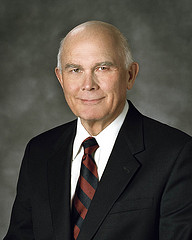 There are also individuals who are recognized for their contributions to advancing religious freedom. One of those distinguished individuals is Dallin H. Oaks, a member of the Quorum of the Twelve Apostles (the second-highest presiding group within The Church of Jesus Christ of Latter-day Saints, inadvertently referred to as the Mormon Church by the media and others.) In honor of his lifelong contributions, Elder Oaks will receive the Becket Fund for Religious Liberty’s Canterbury Medal at the Becket Fund for Religious Liberty’s 18th anniversary “Canterbury Medal Dinner” which will be held on Thursday evening, 16 May 2013, at New York City’s Pierre Hotel.
There are also individuals who are recognized for their contributions to advancing religious freedom. One of those distinguished individuals is Dallin H. Oaks, a member of the Quorum of the Twelve Apostles (the second-highest presiding group within The Church of Jesus Christ of Latter-day Saints, inadvertently referred to as the Mormon Church by the media and others.) In honor of his lifelong contributions, Elder Oaks will receive the Becket Fund for Religious Liberty’s Canterbury Medal at the Becket Fund for Religious Liberty’s 18th anniversary “Canterbury Medal Dinner” which will be held on Thursday evening, 16 May 2013, at New York City’s Pierre Hotel.
Elder Dallin H. Oaks has served as a member of the Quorum of the Twelve Apostles of The Church of Jesus Christ of Latter-day Saints since May 1984. Prior to accepting his calling, he had a distinguished career in the law. Elder Oaks clerked for U.S. Supreme Court Chief Justice Earl Warren, taught law at the University of Chicago, was in private legal practice, and served as a Justice of the Utah Supreme Court. He continues to be a highly respected public speaker, addressing topics of law, policy, and culture throughout the country. [3]
“We’re privileged to add Elder Oaks to the distinguished list of Canterbury Medalists, each of whom has given a lifetime to defending our religious liberty,” said William P. Mumma, Becket Fund President. “He is an eloquent advocate for the principle that American society is stronger for a diverse and robust presence of faith in our public square.” [3]
Concerning our religious freedoms, Elder Oaks in an address given at Chapman University School of Law on the topic of preserving religious freedom, in 2011 stated:
I submit that religious values and political realities are so inter-linked in the origin and perpetuation of this nation that we cannot lose the influence of religion in our public life without seriously jeopardizing our freedoms. [4]
Additional Resources:
Elder Dallin H. Oaks Speaks at University of Chapman Law School
Elder Dallin H. Oaks – Religious Freedom is at Risk
The Becket Fund for Religious Liberty
Keith L. Brown is a convert to The Church of Jesus Christ of Latter-day Saints, having been born and raised Baptist. He was studying to be a Baptist minister at the time of his conversion to the LDS faith. He was baptized on 10 March 1998 in Reykjavik, Iceland while serving on active duty in the United States Navy in Keflavic, Iceland. He currently serves as the First Assistant to the High Priest Group for the Annapolis, Maryland Ward. He is a 30-year honorably retired United States Navy Veteran.

